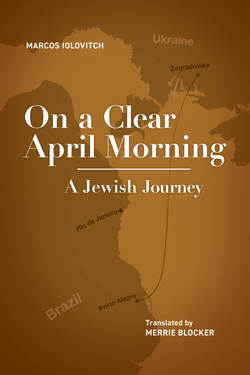Читать книгу On a Clear April Morning - Marcos Iolovitch - Страница 16
На сайте Литреса книга снята с продажи.
ОглавлениеChapter 4
Felled by these setbacks, defeated by the lack of farming experience, we suffered extreme shortages. Our food supplies were reduced to yucca flour and sweet potatoes.
Left to us as a last resort was hunting. But that is prohibited by the Jewish faith that only allows the consumption of meat under the rigorous observance of the rituals prescribed by its laws. Food prepared according to these dietary rules is called “kosher.” And “treif” is the name given to food prepared in violation of those rules.
My father was religious, as still are most of the Jews of the older generation. For this reason, he preferred to endure hunger rather than transgress one of the precepts of his centuries-old faith. But to spare his children the dire consequences of his religious beliefs, he resolved to abandon farming, and become a day laborer, as did my oldest brother.
In the beginning, they earned a living as members of a crew building a railroad. Then they went to work for the company, JCA. They fenced the homesteads with barbed wire. They dug holes. They planted stakes. And they nailed the wire.
If I am not mistaken, they realized a dime for the opening of each pit, measuring two feet in depth and ten inches in diameter.
They left for work in the early morning on Mondays and only returned on Fridays at nightfall to spend Saturday at home, the day of rest for the Jews.
With tools on their shoulders and knapsacks on their backs, carrying the provisions for an entire week of arduous labor, a kettle, a loaf of yucca bread, a little coffee, and some sugar, and their legs bandaged with strips of cloth cut from burlap sacks with their feet rolled up in bags of the same fabric, they left home, wife, children and brothers and set out for the harsh battle for a piece of bread, like two men condemned to forced labor. Carrying in their souls the resigned sorrow of the defeated and in their hearts the uncertainty of return, they made their way through the woods, wallowing through the bogs, to open holes in the hard earth of the fields.
They worked from sunup to sundown, exposed to the elements, sleeping out in the cold. They returned always exhausted, filthy, their clothes grimy with red mud, their shirts torn, their hands callused.
They looked like Volga boatmen. But instead of boats full of cargo, they hauled the great weight of their misfortune, harnessed to the cart of misery.
And then Papa began to drink.
Oh! Volga, Volga, how wide are your banks. . . .
